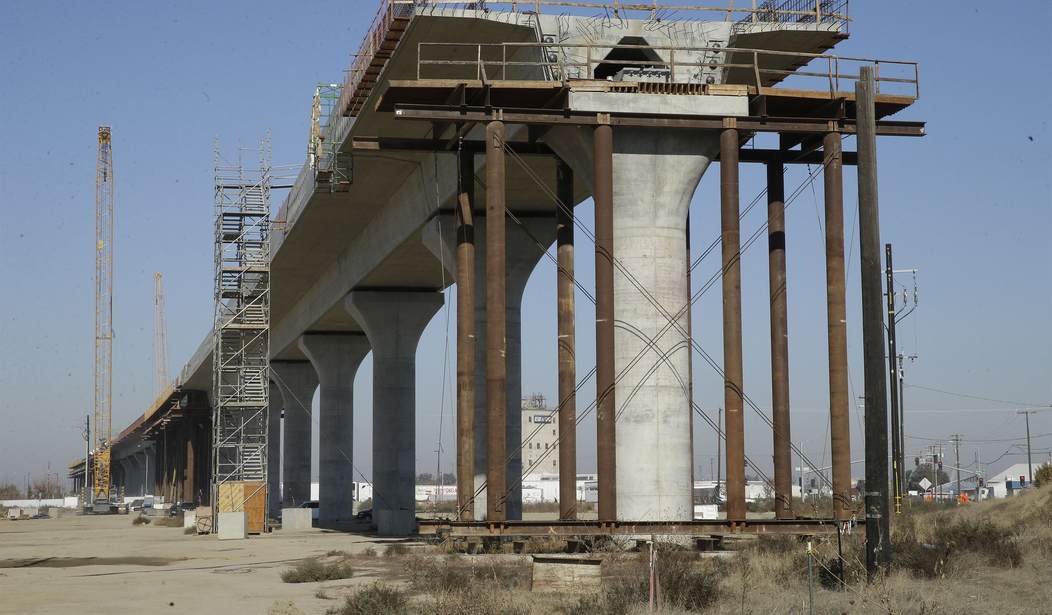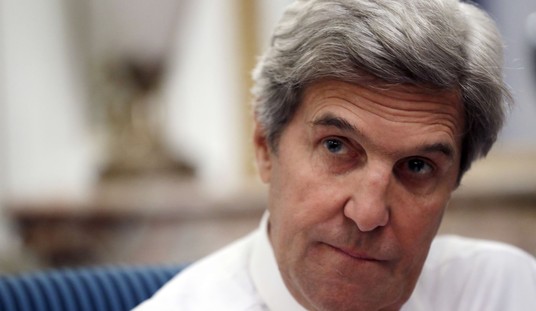They call it the "Texas Central Railway." It was unveiled in 2013 and was supposed to be a fully privately funded high-speed rail project connecting Dallas and Houston.
Unfortunately, it didn't quite work out that way. In fact, nothing that was promised about this project has come to pass, including the "privately funded" pledge.
The California High Speed Rail project, which was supposed to connect Los Angeles and San Francisco by 2035, is a decade off-schedule and is expected to cost $100 billion more than initially planned. The Texas high-speed rail boondoggle hasn't wasted that much public money. At least, not yet.
By 2019, the Texas project's investors were forced to double their original cost estimate of $10 billion to $20 billion. In 2020, the estimates rose to $30 billion. By 2023, an analysis by Baruch Feigenbaum, senior managing director of transportation policy at Reason Foundation, upped the tally to $41.6 billion.
Japanese investors had originally contributed a large part of the funding, but they backed out even after Joe Biden's Boondoggle Machine tried to pour $64 million down the Texas project's black hole by awarding Amtrak the contract. According to Railway Supply, the Department of Transportation canceled the grant "due to ballooning costs and dependence on public funding."
Ya think?
Still, officials told the Texas House Transportation Committee that the delusional investors believe the project is on track to be completed within a decade. An investment firm headed by Fort Worth businessman John Kleinheinz "bought its Japanese investors out of the project in January," reports The Texas Tribune.
"We agree with Secretary Duffy that this project should be led by the private sector, and we will be proud to take it forward," Kleinheinz Capital said in a statement.
How? With what?
"Our interpretation of what the Department of Transportation released a couple of days ago is that number one, they don't want Amtrak leading this project," Andy Jent, a representative of Texas Central, told the Texas House of Representatives' Transportation Committee on Thursday. "We also don't believe that that's in the best interest of the state of Texas or in the best interest of this project."
This is either a gigantic con, or these investors are really, really stupid.
The rail line has yet to lay a single foot of track or acquire the necessary permits to begin construction. In 2020, the Federal Railroad Administration issued a final environmental impact statement under the National Environmental Policy Act, which did "not grant any kind of construction approval or permit. Neither does this final rule, by itself, grant any permission or authority" for the company to operate. "The publication of this final rule is the beginning for [Texas Central Railroad], not the end, of its continuous obligation to demonstrate compliance with the regulation."
As of January 2024, the project had not received the necessary permits from the federal Surface Transportation Board to begin construction. The city of Houston has not approved a terminal site for the train, but Dallas has spent $1.5 million on an economic feasibility study for the project, Dallas City Council member Omar Narvaez told KERA News.
The project has also faced opposition from the state government. In 2017, Texas lawmakers passed a law prohibiting the Texas legislature from appropriating funds "related to the planning, facility construction or maintenance, security, or operation of a high-speed rail project operated by a private entity."
Jernt says that about 25% of the land needed to build the rail line has been acquired, which is probably an exaggeration. Texas landowners have fiercely opposed the project, even after the state Supreme Court ruled in 2022 that the investors could use eminent domain to buy property. The state legislature is considering legislation that would prevent Texas Central from using eminent domain to build its railroad.
Once the developers give the green light, Jent expects that it will take six months to finalize project planning. During that time, Texas Central would secure more financing and submit a final permit to the Surface Transportation Board. Jent expects it would then take 80–86 months to complete construction of the project.
This estimation is a bit ambitious, Feigenbaum tells Reason. With the project's cost ballooning from $10 billion to over $40 billion, "I don't see how they're going to come up with" the funding that's needed for the rail line, he says.
Like the California dreamers who are pushing high-speed rail in the Golden State, the Texas backers are not facing reality. It's not surprising. Americans have always been a little nutty when it comes to trains. We played with them as kids. We've romanticized them even in the internet age.
But these boondoggles are real life and costing the American taxpayer far more than they're worth.










